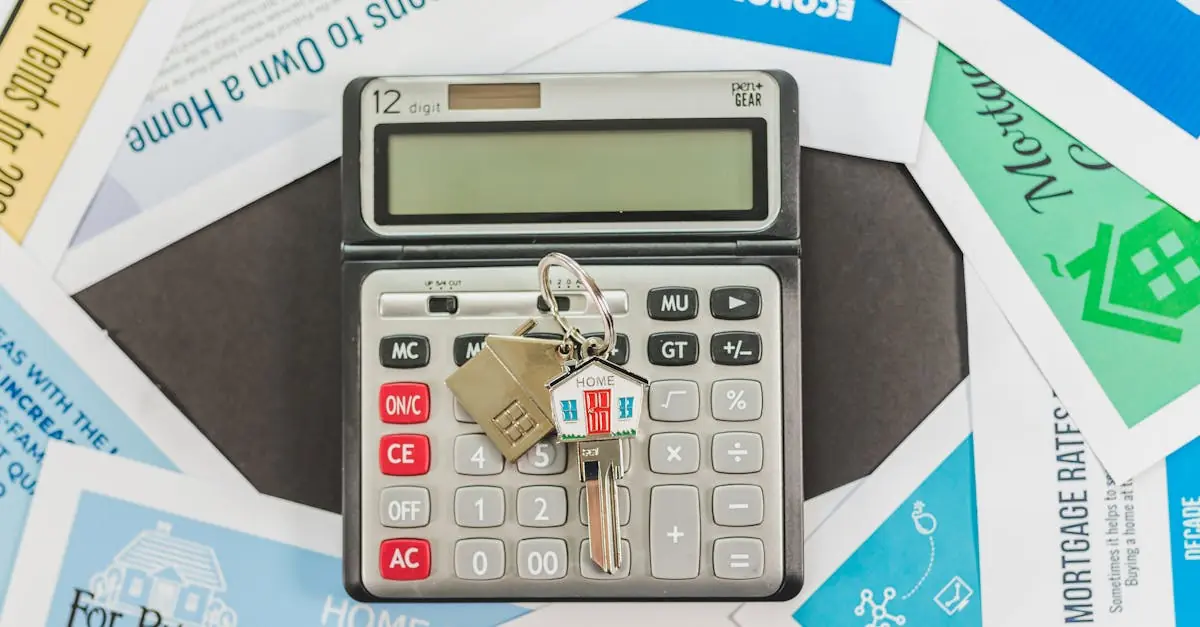Table of Contents
ToggleImagine owning a home without the financial stress that usually comes with it. For veterans and active-duty service members, VA loans offer a golden opportunity to turn that dream into reality. But why stop at just living in your new digs? Enter house hacking—a clever strategy that lets homeowners share their space and expenses, making mortgage payments feel like pocket change.
Understanding VA Loan House Hacking
VA loan house hacking enables veterans and active-duty service members to optimize their homeownership experience. This strategy combines the advantages of VA loans with the ability to share living spaces and lower housing costs.
What is VA Loan House Hacking?
VA loan house hacking involves purchasing a multi-unit property using a VA loan while renting out additional units. This allows homeowners to generate rental income, thus offsetting mortgage payments. Veterans can take advantage of 0% down payment options, which makes house hacking even more accessible. By living in one unit and renting out others, they can maintain affordability in their housing costs.
Benefits of VA Loan House Hacking
VA loan house hacking offers numerous advantages. It provides a pathway to financial stability through rental income, which directly reduces the cost of homeownership. With no monthly mortgage insurance required, homeowners can save significantly on their monthly expenses. Additionally, veterans benefit from property appreciation over time, which increases their equity. The flexibility of living arrangements allows for lifestyle choices, including accommodating family or friends. Overall, VA loan house hacking is a savvy strategy that maximizes financial returns while leveraging VA loan benefits.
How to Get Started with VA Loan House Hacking
Getting started with VA loan house hacking involves understanding qualifications and identifying suitable properties. Both elements play a crucial role in a successful investment strategy.
Qualifications for VA Loans
Veterans and active-duty service members must meet specific criteria to qualify for VA loans. Service requirements include a minimum length of service, often around 90 days of active duty during wartime or 181 days during peacetime. Lenders typically check the debt-to-income ratio, which should ideally be below 41%. A credit score of at least 620 enhances approval chances. Applicants must obtain a Certificate of Eligibility, which confirms service history and entitlement. Exploring various lenders can provide competitive rates and terms.
Finding the Right Property
Finding the right property is essential for maximizing benefits from VA loan house hacking. Multi-unit properties are ideal, as they allow owners to rent out additional units. Evaluating neighborhoods ensures accessibility to amenities and potential tenants. Consider the property’s condition, as repairs or renovations may impact cash flow. Analyze local rental markets to set competitive rental rates. A real estate agent familiar with VA loan requirements can aid in the search, streamlining the process for prospective investors.
Strategies for Successful House Hacking
House hacking through VA loans involves creative strategies to maximize rental income and minimize living expenses. Below are effective approaches veterans can use.
Renting Out Rooms
Renting out individual rooms in a single-family home can significantly reduce monthly mortgage costs. Each room rented provides an opportunity for consistent income, especially in high-demand areas. Setting competitive rental prices attracts reliable tenants, ensuring steady cash flow. It’s essential to maintain rental agreements, adhere to local lease regulations, and conduct thorough tenant screenings. Sharing living spaces promotes a community atmosphere while alleviating financial stress. Leveraging online platforms for advertising can reach a broader audience, increasing occupancy rates and optimizing returns.
Multi-Family Properties
Investing in multi-family properties proves advantageous for aspiring house hackers. Properties containing two to four units maximize rental income potential while keeping costs manageable. Living in one unit while renting out the others offers flexibility and independence. When selecting these properties, evaluate the neighborhood for amenities and demand, as they influence rental rates. Conducting market research helps set competitive prices and improves tenant acquisition. Utilizing VA loans with no down payment makes purchasing an affordable option. Real estate agents experienced in multi-family transactions can streamline the buying process, ensuring a smarter investment.
Potential Challenges and Solutions
House hacking comes with certain challenges. Understanding potential pitfalls enhances the success of the strategy.
Common Pitfalls in House Hacking
Investors can face several common pitfalls in house hacking that lead to complications. Underestimating expenses often results in financial strain. New landlords might overlook property management costs and maintenance bills. Inefficient tenant screening can lead to problematic renters, creating stress and financial loss. Setting unrealistic rental prices also affects occupancy rates and income potential. Additionally, neglecting to establish clear rental agreements can result in misunderstandings and disputes. Awareness of these pitfalls allows for better planning and mitigates risks.
Legal Considerations
Legal considerations play a crucial role in house hacking. Landlords must comply with local zoning laws and regulations. Failure to verify these may lead to fines or forced eviction of tenants. Additionally, understanding fair housing laws is essential to avoid discriminatory practices. Local lease laws affect tenant-landlord relationships; thus, awareness creates smoother interactions. Investors need to ensure the proper licensing and permits for multi-unit properties are obtained to remain compliant. Consulting with a real estate attorney helps navigate complex regulations and protects investors’ interests.
Conclusion
VA loan house hacking offers a unique opportunity for veterans and active-duty service members to achieve financial independence through smart real estate investments. By leveraging the benefits of VA loans and rental income, they can significantly reduce their housing costs while building equity.
With careful planning and the right property selection, house hacking can lead to long-term financial stability. Understanding the local market and ensuring compliance with legal requirements are essential steps in this process. This strategy not only enhances affordability but also empowers veterans to take control of their financial future.








